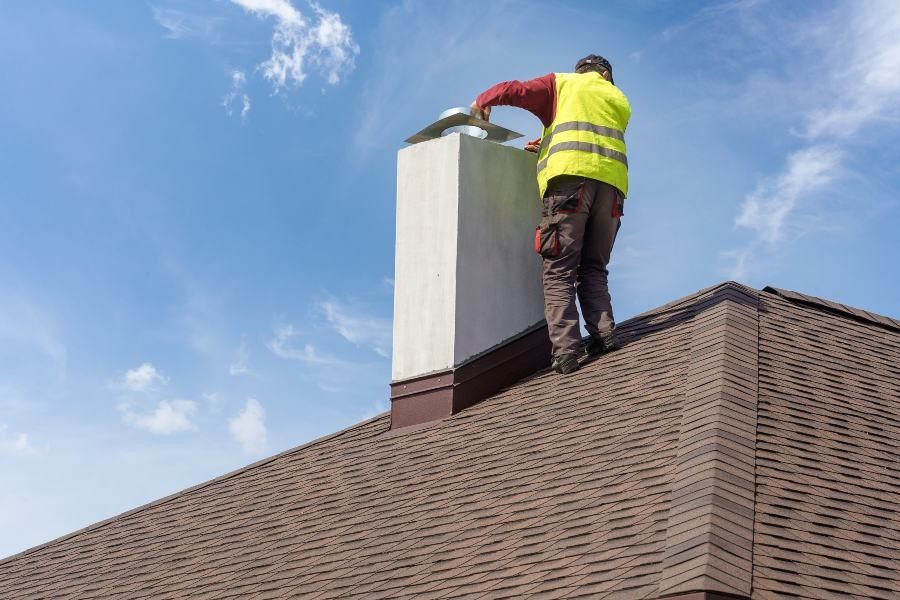How Often Should You Schedule Roof Inspections? Expert Recommendations
A well-maintained roof protects your home from the elements and ensures the safety and comfort of your family. Regular roof inspections help to identify and address potential issues before they become significant problems. Homeowners and property managers often overlook the importance of routine inspections, however, leading to costly repairs and premature roof replacements.
Neglecting roof maintenance can result in a range of issues, from minor leaks to severe structural damage. Water intrusion, mold growth, and energy inefficiency are just a few of the potential consequences of a neglected roof. By scheduling regular inspections, you can mitigate these risks and extend the lifespan of your roof. Today we will explore the various conditions that determine how often you should have your roof inspected.
Understanding Roof Inspections
Understanding the unique characteristics of each roofing type helps in tailoring the inspection process to identify potential issues specific to the material and design. Different material types of roofs have specific inspection needs. For instance, shingle roofs, the most common residential roofing material, require inspections for granule loss, curling, or missing shingles. Tile roofs, known for their durability, need checks for broken or displaced tiles and underlying water barriers. Flat roofs, often used in commercial buildings, need to be inspected for water pooling, membrane damage, and proper drainage. Metal roofs, appreciated for their longevity and resistance to extreme weather, should be inspected for rust, loose seams, and fasteners.

Factors Influencing Inspection Frequency
The frequency of roof inspections can vary significantly based on several factors. Understanding these factors can help homeowners and property managers determine an appropriate inspection schedule that ensures the roof remains in optimal condition.
- Age of the Roof
One of the primary factors influencing how often a roof should be inspected is its age. Newer roofs, typically less than five years old, might not require as frequent inspections as older roofs. However, it’s still essential to conduct an initial inspection after installation to ensure everything is correctly in place. As roofs age, the frequency of inspections should increase. Roofs over ten years old should be inspected at least annually, and those over 20 years old might benefit from semi-annual inspections to catch any emerging issues promptly.
- Local Climate and Weather Patterns
The local climate and weather patterns also play a crucial role in determining inspection frequency. In areas prone to heavy rain or snow, roofs may suffer from water damage, ice dams, and excessive weight, necessitating more frequent inspections. Regions with high winds or hail can cause significant roof damage, making post-storm inspections critical. Coastal areas, where roofs are exposed to salt and moisture, may require more regular checks to prevent corrosion and other salt-related damages.
- Roofing Materials and Their Durability
Different roofing materials have varying levels of durability, which impacts how often they need to be inspected. Asphalt shingles, the most common roofing material, typically require annual inspections. Tile and metal roofs, known for their durability, might need less frequent inspections, although it’s still essential to check them regularly for specific issues like broken tiles or rust. Flat roofs, often covered with membranes, require regular inspections to ensure there are no punctures or drainage problems.
- History of Previous Repairs and Maintenance
The maintenance and repair history of a roof also affects how often it should be inspected. Roofs with a history of frequent repairs or past damage may require more regular inspections to monitor ongoing issues or to ensure that repairs have been effective. Additionally, if a roof has undergone significant repairs or renovations, follow-up inspections are necessary to verify that the work has been completed correctly and that no new problems have arisen.
So How Often Should My Roof Really Be Inspected?
For newly installed roofs, it is recommended to conduct an initial inspection shortly after installation to verify that all components are properly in place and functioning as intended. During the first few years, bi-annual inspections can help identify any early signs of issues that might have been overlooked during installation or that have developed due to settling and environmental exposure.
As roofs age, the frequency of inspections should increase. For roofs that are over five years old, annual inspections are advisable. These inspections can help catch any wear and tear that naturally occurs over time, such as shingle deterioration or minor leaks, before they escalate into more significant problems. For roofs that have reached or exceeded the ten-year mark, semi-annual inspections are highly recommended. At this stage, roofs are more susceptible to damage and deterioration, and frequent inspections can help manage these risks effectively.
In addition to regular scheduled inspections, it is crucial to conduct inspections following severe weather events. Storms, heavy rain, hail, and strong winds can cause unexpected damage to roofs, such as missing shingles, leaks, or structural damage. Post-storm inspections allow homeowners to address any storm-related issues promptly, preventing further damage and costly repairs.
Schedule Your Roof Inspection with Paul Bange Roofing
Don’t wait until small roof issues turn into costly repairs. Protect your home and ensure its longevity with a professional roof inspection from Paul Bange Roofing, South Florida’s trusted roofing experts. Our experienced team provides thorough inspections and quality service to keep your roof in top condition. Whether your roof is new or aging, regular inspections are essential to catch problems early and maintain the safety and value of your home. With our deep understanding of South Florida’s unique weather challenges, we offer tailored inspection schedules to suit your roof’s specific needs. Contact Paul Bange Roofing today to schedule your roof inspection. You can trust us to safeguard your home with the care and expertise it deserves.





